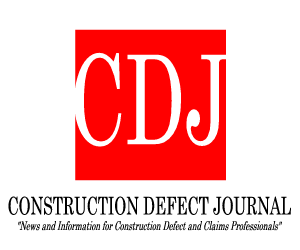
Chipping away at the federal law claims – the claims forming the asserted basis for federal court jurisdiction for the case – the court first dispensed with the Prompt Payment Act claim.
A Miller Act claimant in federal court in New Jersey in relation to a VA medical center project found itself on the wrong end of the law and was sent packing by the court.
The claimant had supplied products for the project to general contractor Valiant Group, LLC, pursuant to a purchase order from the GC. The general contractor allegedly refused to pay the supplier, leading to the claim against the GC and its payment bond surety in the amount of $126,900. The supplier also sought recovery under the federal Prompt Payment Act, 31 U.S.C. §§ 3901-07. State law claims were asserted as well.
Chipping away at the federal law claims – the claims forming the asserted basis for federal court jurisdiction for the case – the court first dispensed with the Prompt Payment Act claim. According to the court, allegations that the general contractor had “wrongfully and improperly withheld remuneration… despite [having] ‘received payment from the U.S. Department of Veterans Affairs’" – whether or not accurate – did not trigger the Act. The court wrote:
“The Prompt Payment Act was enacted ‘to provide the federal government with an incentive to pay government contractors on time by requiring agencies to pay penalties . . . on certain overdue bills . . . [and] was later amended to include provisions applicable to subcontractors.’… Absent from the Act, however, are ‘any explicit provisions for subcontractor enforcement if the prime contractor fails to make timely payment.’… This is because the Act ‘merely requires that the prime contractor's contract with the subcontractor include the specified payment clause. [It] does not require the prime contractor to actually make payments to the subcontractor[.]’… The Act, therefore, does not ‘give subcontractors an additional cause of action for an alleged breach by a general contractor of a subcontract.’”
Mr. Lund may be contacted at daniel.lund@phelps.com




